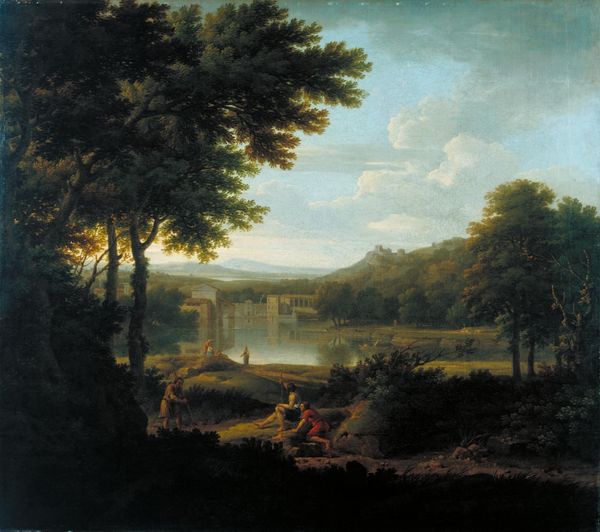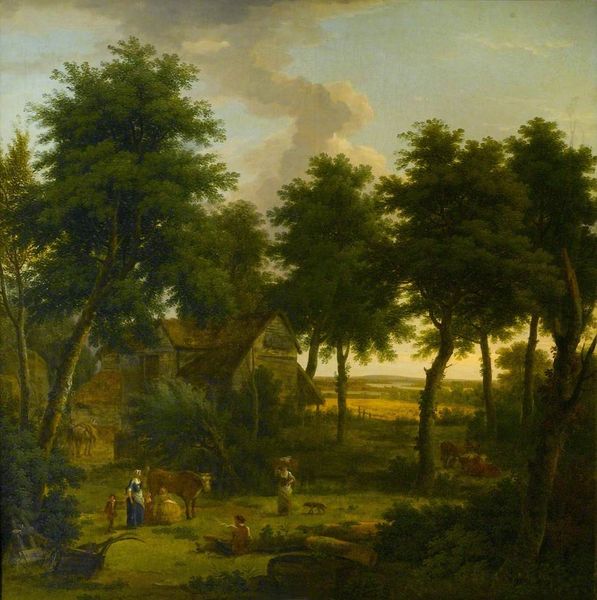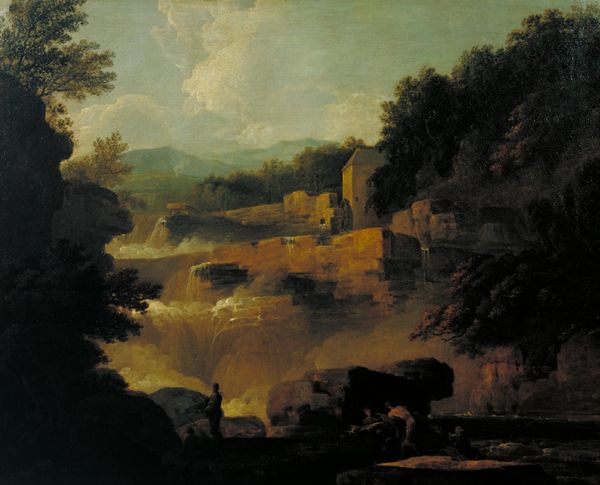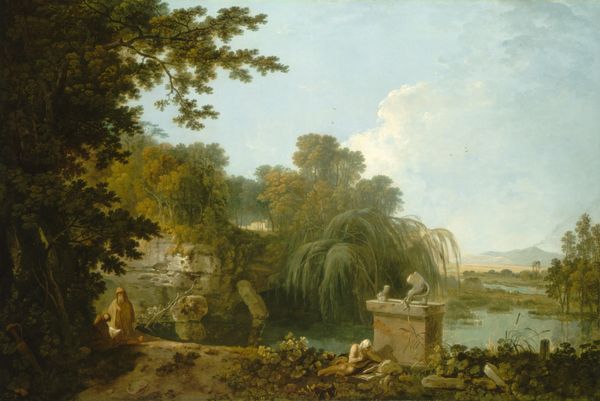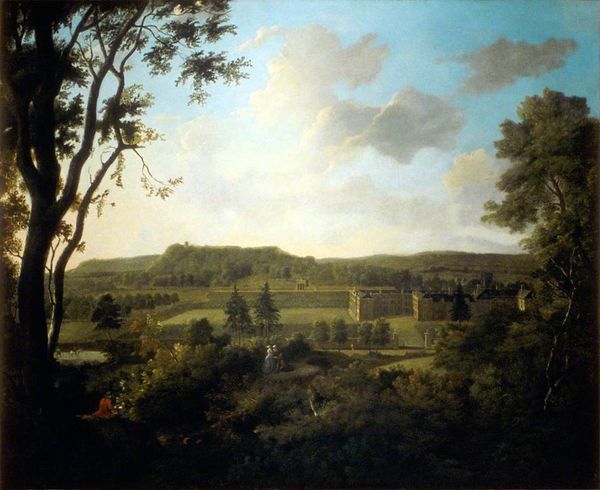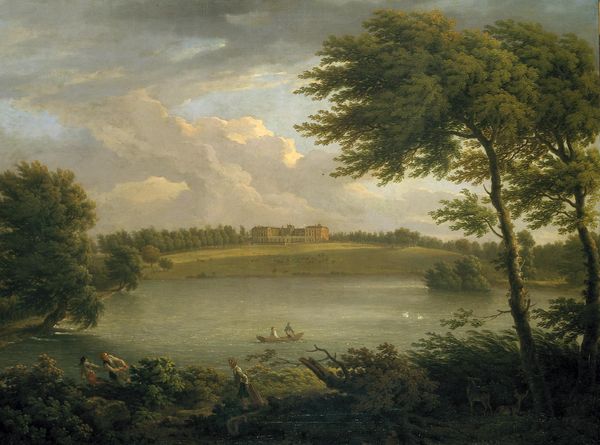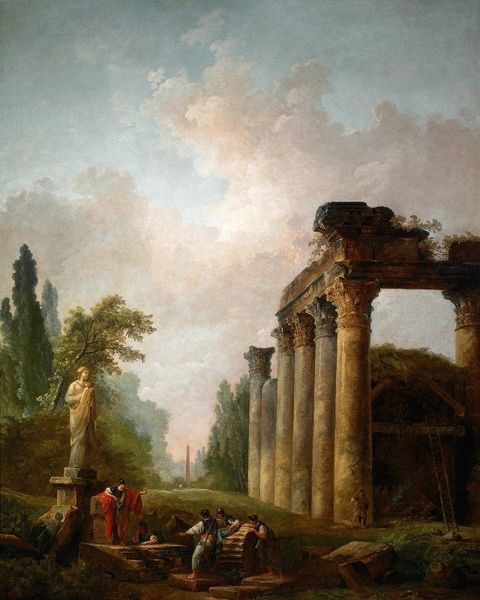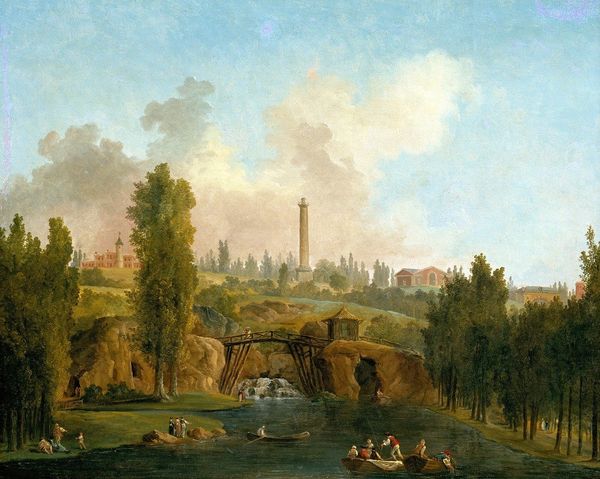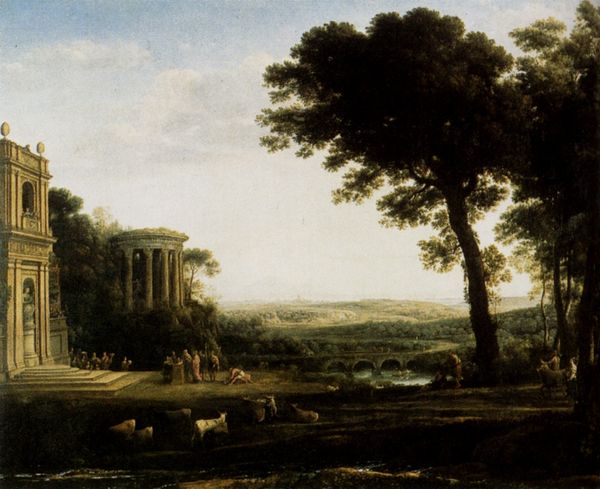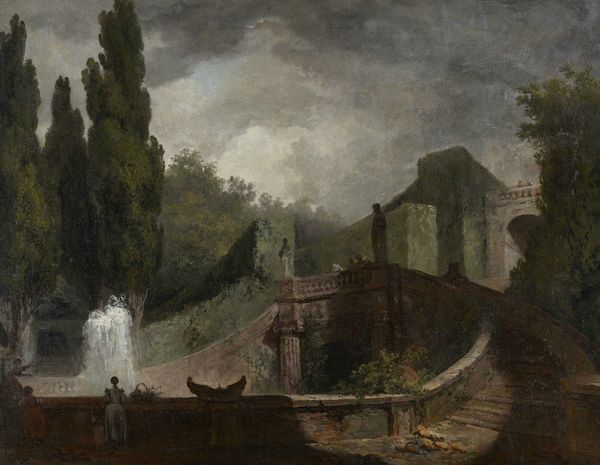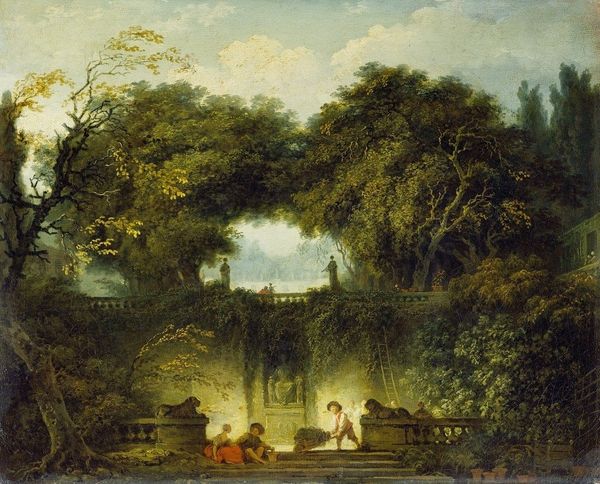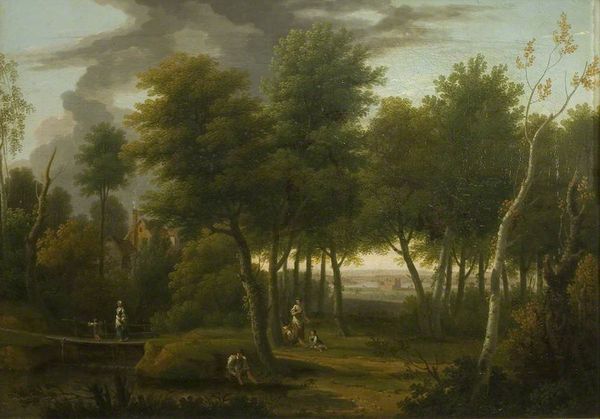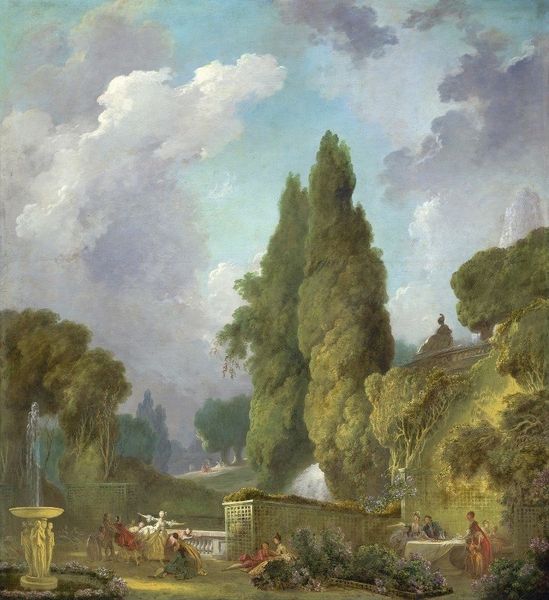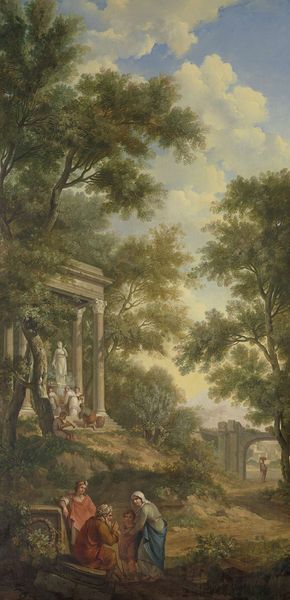
painting, oil-paint
#
gouache
#
painting
#
oil-paint
#
landscape
#
oil painting
#
cityscape
#
history-painting
#
watercolor
#
rococo
Copyright: Public Domain: Artvee
Curator: What a captivating vista! Hubert Robert’s “Park Scene,” circa 18th century, rendered in oil paint, transports us to a bygone era. The cityscape elements, such as the temple-like structure and leisurely figures, really add to that feeling. Editor: It certainly does, at first glance it strikes me as something out of a dream. The light is ethereal, and the entire composition has a delicate, almost fragile quality. Curator: Precisely! The architecture acts almost like a stage for the human drama unfolding within. We see elements of history painting peeking through too, a story being implied even with so little context. Editor: And notice the figures clustered around the water. They are suggestive of figures in classical paintings enjoying leisure time, like arcadian shepherds but placed inside a palatial complex in Rococo garb. There's a clear romantic ideal being presented. Curator: Absolutely. The water element becomes essential to the symbolical message, acting as a mirror that distorts, reflects and reshapes reality around these individuals, or it alludes to the passage of time and its ceaseless transformation of landscapes. Editor: Thinking about its social history, this sort of park was a very particular space for displaying wealth and power. Land ownership was power. By creating an artificial park, replete with waterways, structures, and gardens, Robert is emphasizing his clients' ability to reshape nature to their will. Curator: And Robert positions his art in relation to that role. Remember, Robert spent time in Italy, captivated by classical ruins. We're looking at a blending of memory, longing and self-aggrandizement typical of pre-revolutionary European imagery. The emotional impact isn’t merely decorative; it's ideological. Editor: Yes, his approach suggests both nostalgia and anticipation. I think there's an inherent critique of the power structures it portrays in its composition, in making them seem ethereal and ephemeral. The composition also reveals anxieties about historical destiny. It's about capturing a fleeting moment of perfect order. Curator: Interesting... ultimately the symbols, be they architectural or figurative, lead us towards a deeper engagement with the psychology of power. And the scene suggests more of its period context. Editor: A compelling idea, certainly leaves us with more questions to be investigated regarding art, power and politics within “Park Scene”. Curator: Indeed. It is always fascinating to see how art pieces, such as the Hubert's landscape scene can open dialogues to culture, identity and society.
Comments
No comments
Be the first to comment and join the conversation on the ultimate creative platform.
